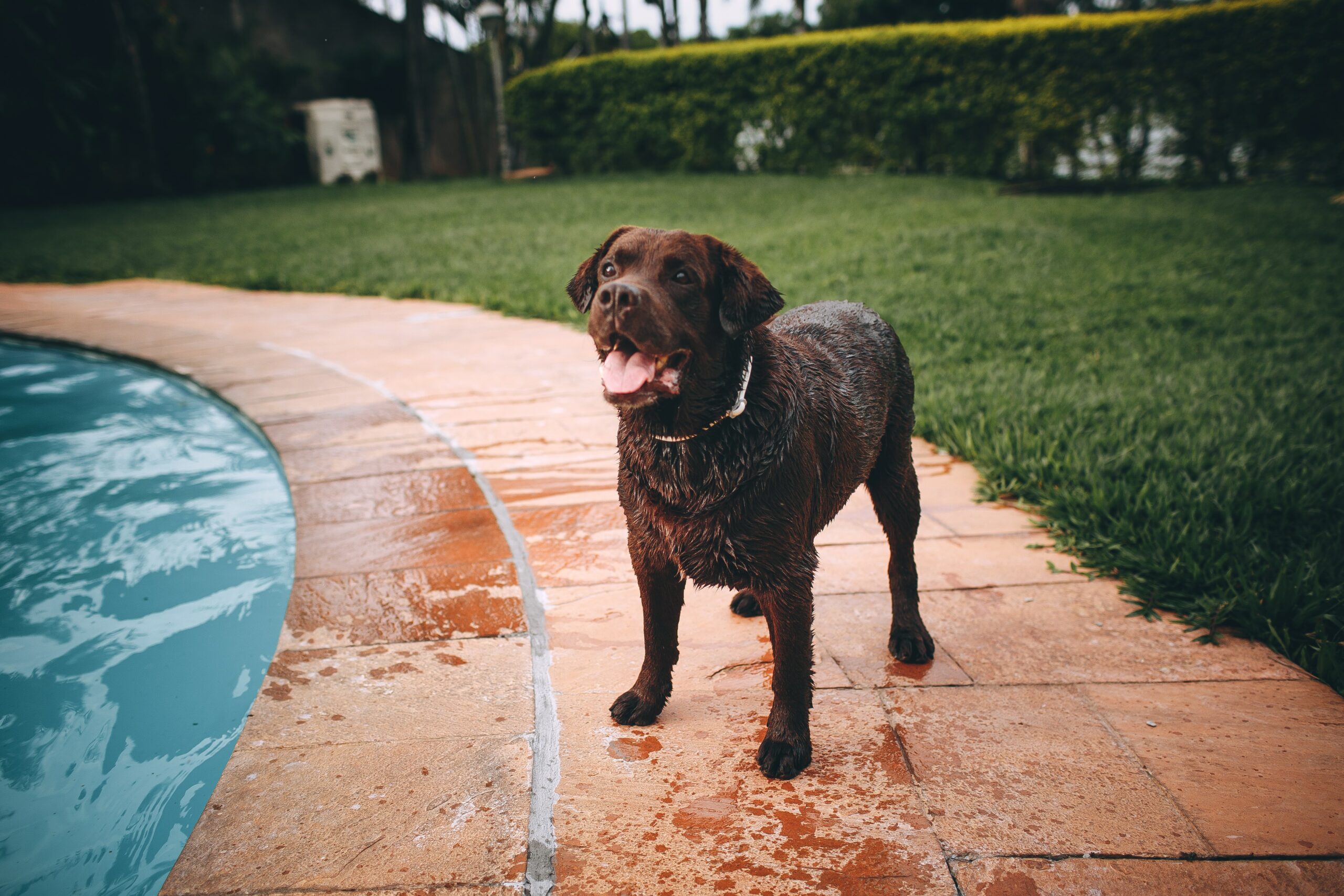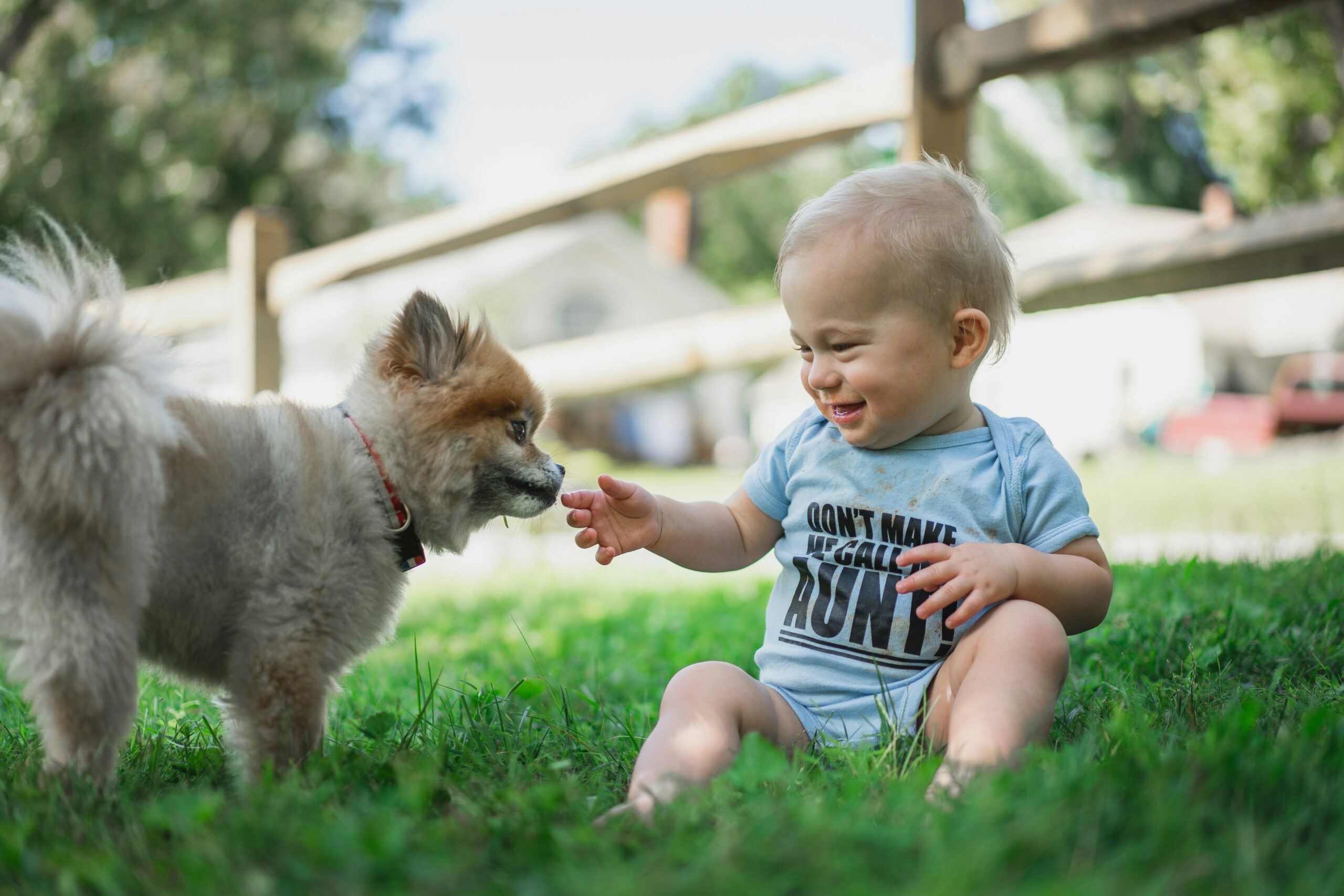During summer, the best way to cool down is to spend time in the pool and savor the cold water of your swimming pool. Dogs feel the same way during summer days. They see the backyard pool as a huge bowl of water and drink on it to cool them down.
If you see your pet drinking the pool water, you should stop them as it is unsafe to drink. Although chlorine at the right level is safe, the pool should not be the water source for your dogs. Aside from chlorine, the pool water also contains other chemicals like algaecide that could harm your pet’s digestive system. So we have written this swimming pool guide to help you stop your dog from drinking pool water.
Harmful Effects of Drinking Too Much Pool Water on your Dog
Drinking a small amount of pool water is not harmful to your dog. Even in humans, occasional drinking of pool water will not cause any detrimental effect. But drinking too much can cause illnesses or may be fatal. Water intoxication occurs when your pet’s body fluids contain too much water than it can process. This depletes sodium chloride levels, resulting in a shift in electrolytes balance.
Drinking excessively from a saltwater pool will result in the same problems as drinking from a chlorine pool. Excessive salt consumption can also cause diarrhea or electrolyte imbalances, which can quickly become life-threatening.
A high chlorine concentration or unclean swimming pool can cause the following to your dog:
Toxins
Swimming pool water contains pool chemicals, such as algaecides and chlorine, to keep the water clean and safe.
Despite their helpful purpose for pool upkeep, these chemicals may be harmful to the dog’s health. Because individuals swallow pool water by accident regularly, the levels of these toxins are purposefully kept low to avoid injury.
Most pets will not have any issues from the occasional intake of the pool water. A large amount may cause health problems, along with burning sensation or irritation to the esophagus.
Furthermore, if the dog is allergic to the chemicals in the pool, the reaction could be fatal.
Microorganisms
The majority of the chemical treatment is used to prevent the growth of these microorganisms by fungi and bacteria that love pools. However, tiny amounts can remain even in the best-kept pool.
One such bacterium was discovered in swimming pools E stands for Escherichia coli (E. coli). Coli is ingested and absorbed through the feces. It will cause several ailments.
Aspiration
Aspiration happens when water or other foreign material enters the lungs. Pets drinking pool water may accidentally aspire to water because of improper drinking posture or the sheer volume of water available.
Typically, aspiration causes the swallowed liquid to be aspirated, choked, and regurgitated.
Aspiration pneumonia is a significant medical disease, and animals exhibiting symptoms such as breathing difficulties, nervousness, loud breathing, and dark lip and gum coloring require rapid medical intervention.
Upset Stomach
Stomach distress is the most prevalent problem with pets drinking pool water. Coldwater, like badly contaminated water, increases the likelihood of gastrointestinal distress.
Dogs who drink pool water to avoid dehydration are more likely to experience stomach discomfort.
Vomiting, regurgitation, and soreness after drinking pool water are all classic symptoms of stomach trouble. While stomach distress is not a life-threatening condition, frequent vomiting can cause dehydration, which can be fatal.
How to Prevent Dog From Drinking Pool Water?
Dogs drinking pool water is a common issue all over the world. However, there are very few cures or methods you can find online. Here are some tried-and-true tricks you can consider using to stop your dog from drinking pool water.
Make Fresh Water Available
A dog drinks pool water for only two reasons. One of those reasons is that they are thirsty. As pet owners, we frequently neglect to supply fresh water to our pets during high-energy activities.
As a result, when dogs see the pool, they see it as a big bowl of water. This can be avoided by keeping a freshwater basin near the pool. This will have easy access to the water.
Drinking Pool Water Is Not Recommended
While swimming, every pet owner is always present with their pet. That implies we’ll keep a watch on them and discourage them from drinking water. We do the same thing with a tiny child.
After a few polite reprimands, the dog will grasp that drinking from the large bowl in the backyard is forbidden and will seek out his water bowl.
Take Short Water Breaks
If all of your tricks fail, start pool training your dog and take a short water break where you take your dog to a freshwater source to drink water. So your pet will drink water, a dog will not drink water from the pool shortly after rehydration.
Swimming Apparatus
The second reason dogs consume pool water is when they are forced to. In a nutshell, we frequently drink water because we feel the same way we do when drowning.
Purchasing appropriate swimming equipment for dogs to assist them in swimming is the best approach to avoid this. It will not only eliminate drinking water in the pool, but it will also help your dog in swimming. You can acquire a life vest for dogs, which will undoubtedly be helpful.
Treat
Always reward your dogs when they do something well or as advised. Simply to make them know they’re on the right track. If your dog prefers to drink from a freshwater bowl rather than a pool, reward him. But don’t overdo it with the treats.
Final Thoughts
It is dangerous to drink too much pool water for humans and your pet dogs. Do not be concerned if your dog consumes a small amount. A small bit of water will not cause any significant issues. Although pool water can cause minimal GI discomfort, you should dissuade your dog from gulping it. Follow the tips above to keep your pet dog away from the danger of getting sick due to too much consumption of pool water. It is better to be safe than sorry.
photo credit: https://unsplash.com/photos/ElQPfOYKmIg
Love our content? Share it with a friend or link it to social media. Like short clips of cute household pets? Training tips? Follow us on instagram @nydognanny or on YouTube at nydognanny. Have some news you needs to get to dog and cat parents stat? Email info@newyorkdognanny.com with your article pitch.




